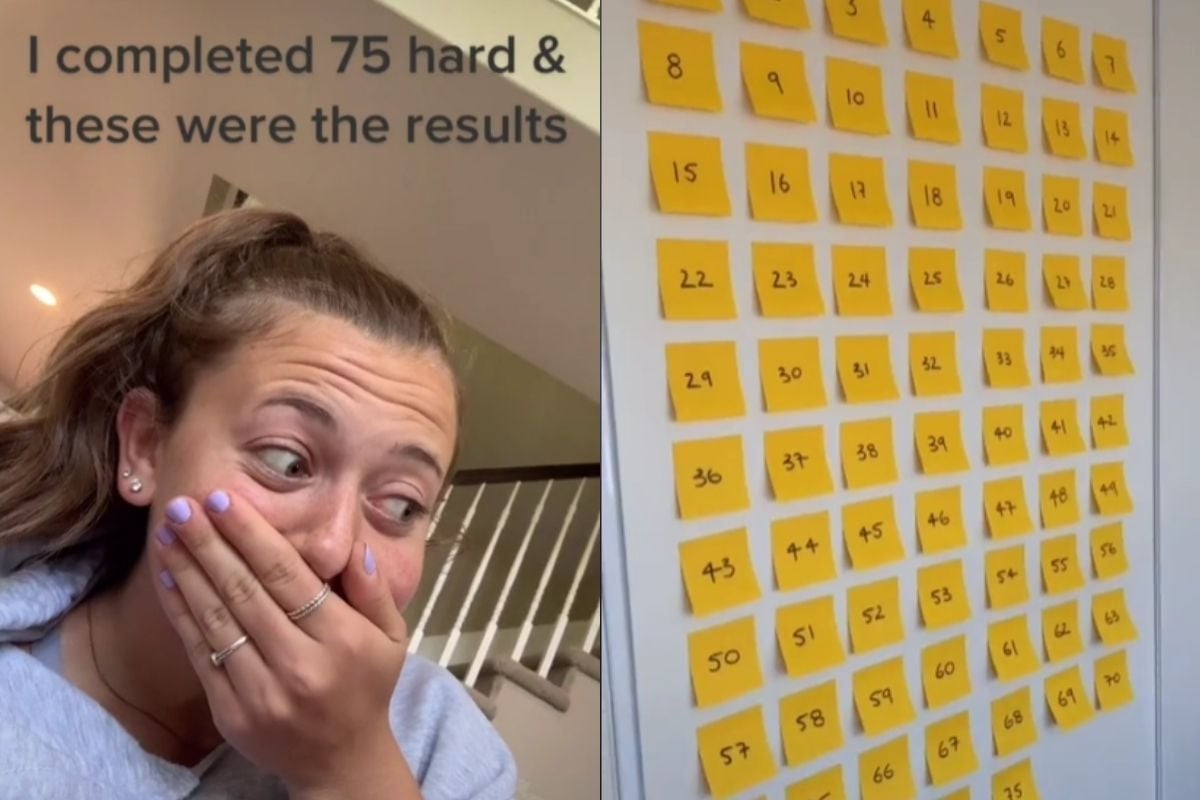
If you're a dame who happens to frequent the ol' TikTok and Instagram, chances are you've seen people posting stuff about something called the '75 HARD' challenge. Yes? Everyone is having a yell about how good it is.
Created by a motivational speaker and entrepreneur Andy Frisella, the 'mental toughness' program has absolutely *exploded* in popularity, with millions of people sharing their journey on social media and encouraging others to jump on board.
Just check out the TikTok views under the hashtags #75HARDChallenge and #75HARD - it's... insane.
Watch: Looking for easy healthy snack ideas? Say no more. Post continues below.
In case you have zero idea what we're talking about (hi, hello, please sit), basically the challenge involves following a specific set of rules that promise to help boost your confidence, health and fitness after 75 days.
Sounds pretty good, yeah?
Well, here's the thing. When you take a proper squiz at what the program actually involves, it seems kinda (very)... problematic.
To suss it all out, we asked an expert to help us break down the 75 HARD program, including what's involved and the impact it can have on your physical and mental health.



Top Comments